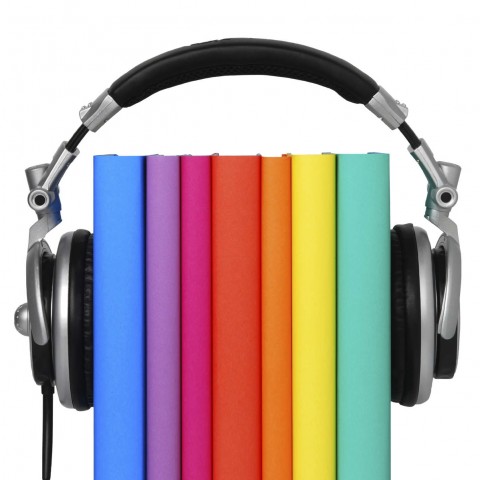Music for Language Learning: Best Practices
Thursday, November 7th, 2019
All cultures have a form of music that they call their own. Music is one of the early types of learning tools to learn a language. Parents use music to teach their young children simple words. Scientists have proven that music helps in focusing attention, improving memory, and acquiring a language. Music is a good foundation builder as well because it can help in physical development and coordination.
Why music helps in language learning
The imitation of the musical structure and rhythm of a language helps a person learn a language, which is one reason why children learn a new language faster. They play with other children and listen to songs, allowing them to adopt a new language easily. The repetition of song lyrics, such as those from nursery rhymes helps children retain words and expressions. Children may not know the meaning of the words from another language, but they will remember them. Mimicking the pronunciation of the words helps them practice making the sounds. The sounds will later lead to understanding their actual meaning.
You might not notice it, but have you wondered at times why you still remember the nursery rhymes that you learned as a child? You can effectively retain expressions and words through music; that’s why. It’s also the reason why you can memorize the lyrics of a song you like because the pattern is repetitive. Moreover, when you listen to music and follow the words, rhythm, beat and melody, you use both sides of your brain.
Ways to study a language through music
Each person studies and learns differently. When using music for language learning, the most effective way depends on your studying and learning habits. However, we want to give you different ways you can approach your language learning through music with these best practices.
1- Passive listening
Whether you have foreign language songs on your computer or you have a CD of foreign songs, one way to learn the language is through passive listening. Let the foreign music play in the background while you are doing something else. To achieve fluency in another language, you should be familiar with it. You need to train your brain to function in the new language 100 percent. The practice is one form of language immersion. As you listen and get more familiar and comfortable with the background music, you can pick up grammar patterns along with common words and phrases.
2- Memorization
Learn how to memorize and add more words to your dictionary. Memorizing the song lyrics is an excellent way to improve your memory. At the same time, the memorization exercise gives you confidence. Memorization gives you three benefits. It enhances your listening skills, boosts your reading skills, and improves your pronunciation of the words. Memorization will likewise help you do the next method.
3- Sing-along
This method is similar to the first one. But instead of listening passively, you take an active role in the exercise. Download lyrics of the foreign songs you like. Some download sites provide the original song lyrics as well as translations in English. Play the song and sing along. You can also find videos on YouTube that have lyrics in the source and target languages. Either way, you’ll learn grammar, spelling and pronunciation while enjoying the songs of your favorite foreign singers. Your listening and reading skills will likewise benefit from the exercise.
You can check your progress by finding the karaoke versions of the foreign songs you like. Again, YouTube is your friend. Trying to sing the song while reading the lyrics in the target language will test if your language learning is progressing.
4- Transcription
This method may sound weird to you initially. You listen to the song as it plays while you write down (or transcribe) the lyrics. At first, you are likely to catch only a few familiar words. Don’t be frustrated and continue what you’re doing. Let the music play as you write everything you hear. Play the song again and write the words that you missed in the first pass. In time, your hearing will improve, as you understand the words better. Your brain’s processing time will be shorter and faster. Further, it will enhance your spelling. Listening to the music and transcribing the lyrics will give your word list a boost.
These are just a few of the effective ways to learn a foreign language using music. Be patient and enjoy foreign music as you learn your target language. If you wish to start with something simpler, listen to children’s songs in your target language. The repetition of the song lyrics is more constant, which allows your brain to assimilate foreign words faster. If you need help in transcribing songs and music sheets, our language translation services team can help.
Learning a language through music means language learning more fun. Likewise, you learn to focus your attention and improve your memory. It’s an effective method when you self-study.
Author Bio: Sean Patrick Hopwood is the polyglot CEO of Day Translations, Inc., an interpreting services provider that serves clients in a wide range of industries including eSports, finance, and government.
Learn a language in the fastest, easiest and most fun way with Innovative Language Learning!
- Learn Arabic with ArabicPod101
- Learn Cantonese with CantoneseClass101
- Learn Chinese with ChineseClass101
- Learn English with EnglishClass101
- Learn French with FrenchPod101
- Learn German with GermanPod101
- Learn Greek with GreekPod101
- Learn Italian with ItalianPod101
- Learn Japanese with JapanesePod101
- Learn Korean with KoreanClass101
- Learn Polish with PolishPod101
- Learn Portuguese with PortuguesePod101
- Learn Russian with RussianPod101
- Learn Spanish with SpanishPod101
- Learn Thai with ThaiPod101
- Learn Dutch with DutchPod101
- Learn Swedish with SwedishPod101
- Learn Hungarian with HungarianPod101
- Learn Hebrew with HebrewPod101
- Learn Hindi with HindiPod101
- Learn Indonesian with IndonesianPod101
- Learn Bulgarian with BulgarianPod101
- Learn Vietnamese with VietnamesePod101
- Learn Finnish with FinnishPod101
- Learn Filipino with FilipinoPod101
- Learn Norwegian with NorwegianClass101
- Learn Turkish with TurkishClass101
- Learn Persian with PersianPod101
- Learn Swahili with SwahiliPod101
- Learn Czech with CzechClass101
- Learn Danish with DanishClass101
- Learn Afrikaans with AfrikaansPod101
- Learn Romanian with RomanianPod101
- Learn Urdu with UrduPod101

































